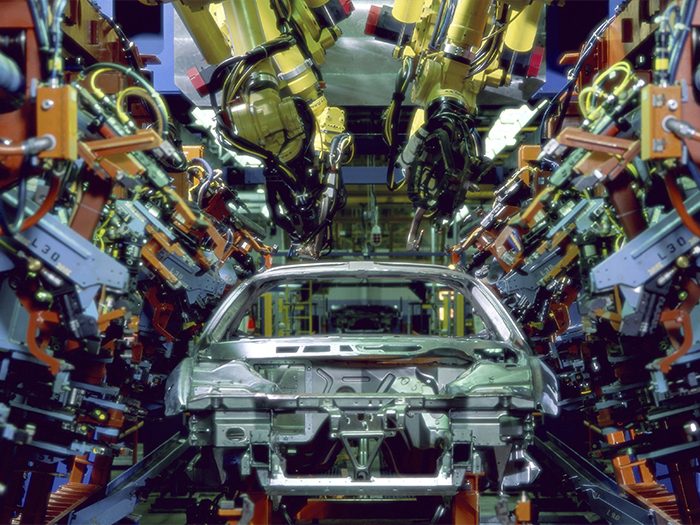Nissan Explores Merger with Honda: A Game-Changing Shift in the Global Automotive Industry
In a development that has sent ripples through the global automotive sector, Nissan Motor Co., Ltd. is reportedly exploring a merger with Honda Motor Co., Ltd., in what could become one of the most significant consolidations in the history of the industry. While both companies have yet to issue official confirmations, credible sources within the industry suggest that discussions are at a preliminary but serious stage. Such a merger, if realized, would reshape the competitive landscape, potentially creating a Japanese automotive powerhouse capable of rivaling global giants like Toyota, Volkswagen, and General Motors.
The Strategic Context
The automotive industry is undergoing a period of profound transformation, driven by advancements in electric vehicles (EVs), autonomous driving technologies, and stringent environmental regulations. Traditional automakers are grappling with these shifts while navigating the financial pressures of adapting their legacy operations. Nissan and Honda, both renowned for their engineering excellence and global reach, are no exceptions to these challenges.
Nissan: A Company in Transition
Nissan has faced a turbulent period in recent years. The fallout from the arrest of former chairman Carlos Ghosn, declining market share, and strained relations with its alliance partners—Renault and Mitsubishi—have taken a toll on the company’s stability. Despite these setbacks, Nissan has shown resilience, particularly in the EV market, where its LEAF model has been a pioneer.

Honda: The Pursuit of Technological Leadership
Honda, on the other hand, has maintained a more stable trajectory but is not immune to industry challenges. Known for its innovation in internal combustion engines and motorcycles, Honda is aggressively pivoting toward EVs and hydrogen fuel cell technology. The company recently announced ambitious carbon neutrality goals and partnerships to accelerate EV development. However, achieving these objectives independently is an uphill task, given the high capital expenditure and technical demands.
Why a Merger Makes Sense
Synergies in EV Development
One of the primary drivers for this potential merger is the opportunity for collaboration in EV technology. Both Nissan and Honda have invested heavily in electrification, but a combined effort could streamline research and development (R&D), reduce costs, and accelerate innovation. Nissan’s expertise in battery technology and Honda’s advancements in hybrid systems could complement each other, enabling the merged entity to offer a comprehensive range of EV solutions.
Economies of Scale
The combined entity would benefit from significant economies of scale. From procurement to production and distribution, a larger operational footprint would enable cost efficiencies. In an industry where margins are increasingly thin, this could provide a crucial competitive edge.
Strengthened Global Presence
Nissan and Honda have distinct strengths in different markets. Nissan has a strong presence in North America, Europe, and China, while Honda enjoys dominance in Southeast Asia and India. A merger would allow the two companies to leverage each other’s market strengths, creating a truly global brand with minimal overlap.
Shared Expertise in Autonomous Driving
Both companies have been investing in autonomous driving technologies. Nissan’s ProPILOT and Honda’s Honda Sensing are among the most advanced driver-assistance systems in the market. A merger would enable the pooling of resources and knowledge, potentially accelerating the development of fully autonomous vehicles.
Challenges and Risks
While the potential benefits are significant, the road to a successful merger is fraught with challenges.
Cultural and Operational Differences
Nissan and Honda have distinct corporate cultures and operational philosophies. Nissan’s history of international partnerships, particularly with Renault, contrasts with Honda’s traditionally independent approach. Aligning these differences will require careful management to avoid conflicts.
Regulatory Scrutiny
A merger of this magnitude would undoubtedly attract scrutiny from regulators, both in Japan and globally. Antitrust concerns could arise, particularly in overlapping markets, potentially delaying or complicating the merger process.
Alliance Implications
Nissan’s existing alliance with Renault and Mitsubishi adds another layer of complexity. How the merger would impact these relationships is an open question. Would Renault perceive the move as a dilution of its influence? Could the alliance survive such a fundamental shift?
Financial Burden
Mergers of this scale require significant financial resources, not just for the transaction itself but also for post-merger integration. Both companies would need to ensure that their balance sheets can absorb these costs without jeopardizing other strategic initiatives.

Potential Industry Impacts
Competitive Pressure on Rivals
A Nissan-Honda merger would likely compel other automakers to rethink their strategies. Companies like Toyota and Volkswagen may feel pressured to bolster their own partnerships or pursue mergers to maintain competitive parity.
Acceleration of Industry Consolidation
The automotive industry has been inching toward consolidation as companies face mounting pressures to invest in new technologies. A successful merger between Nissan and Honda could serve as a catalyst, accelerating similar moves across the sector.
Innovation Boost
By pooling their R&D efforts, the merged entity could emerge as a leader in EV and autonomous driving technologies. This could spur innovation not just within the company but across the industry, as competitors strive to keep pace.

What’s Next?
As of now, neither Nissan nor Honda has made any official announcements regarding the merger. However, the mere possibility of such a move underscores the shifting dynamics of the automotive industry. Both companies are likely to weigh their options carefully, considering not just the strategic benefits but also the operational and financial risks.
In the coming months, industry observers will be closely monitoring developments. Key questions include:
- Will the two companies proceed beyond exploratory talks?
- How will stakeholders, including employees, investors, and alliance partners, react?
- What role will the Japanese government play in facilitating or scrutinizing the merger?
Conclusion
A potential merger between Nissan and Honda represents a bold and transformative vision for the future of the automotive industry. While challenges abound, the strategic rationale is compelling, particularly in an era where collaboration is increasingly essential to navigate technological and market disruptions. Whether this vision becomes a reality remains to be seen, but its implications will undoubtedly be far-reaching, reshaping the global automotive landscape for years to come.












